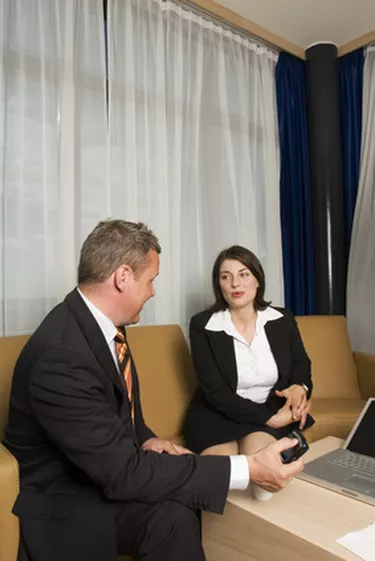
Probate is the process of paying final expenses and transferring ownership of estate assets to heirs after someone dies. Even though probate is a legal process, this does not always mean that a probate judge must approve each step in the process, or that it will even be necessary to appear in probate court. While each state sets specific laws regarding probate, most allow a type called informal probate that can expedite closing an estate and save money in the process.
Identification
Video of the Day
An informal probate, also called voluntary administration, is a way to handle matters of probate outside a court of law. Most often, the size of your estate and agreement between your heirs, rather than whether or not you have a will, determines whether informal probate is an option. Regardless of the manner in which probate is complete, however, the court must approve and legally appoint the personal representative in charge of closing out an estate before probate can begin.
Video of the Day
Preliminary Actions
As a personal representative, once you receive court approval and documents that allow you to act on your loved one's behalf, you start by filing paperwork and paying a filing fee. Documents commonly include those relating to your role as personal representative, heir and beneficiary consent forms, an asset inventory and an application to open probate. In addition, some states may also require you to get a signature or surety bond. As a final step, you open a checking account and if your state requires newspaper notification, place a notice to creditors and time limit for filing claims against the estate in your local newspaper.
Process
An informal probate must be complete within the time your state specifies. For example, in Wisconsin, you have 12 months unless you petition the court for additional time. During this period, you complete all the activities necessary to close the estate, such as paying bills, liquefying assets, selling real estate and filing a final tax return without first receiving permission from the court. If a will is present, you also distribute assets according to the terms of the will. When the informal probate is nearing completion, you then file a final accounting statement, along with receipts or other paperwork to document the transfer of money into and out of the estate.
Considerations
An informal probate can be a complicated process. Although you can accomplish this without an attorney, a general recommendation is to retain both a probate and tax attorney to advise you during the informal probate process. It is important to keep in mind that even if the process starts as an informal probate, if any issues arise, heirs can always contest by requesting a formal hearing.